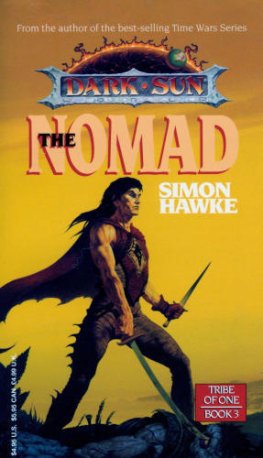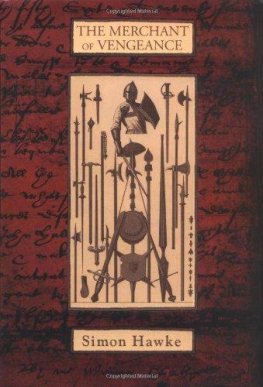Simon Hawke - The Cleopatra Crisis
Here you can read online Simon Hawke - The Cleopatra Crisis full text of the book (entire story) in english for free. Download pdf and epub, get meaning, cover and reviews about this ebook. genre: Science fiction. Description of the work, (preface) as well as reviews are available. Best literature library LitArk.com created for fans of good reading and offers a wide selection of genres:
Romance novel
Science fiction
Adventure
Detective
Science
History
Home and family
Prose
Art
Politics
Computer
Non-fiction
Religion
Business
Children
Humor
Choose a favorite category and find really read worthwhile books. Enjoy immersion in the world of imagination, feel the emotions of the characters or learn something new for yourself, make an fascinating discovery.

- Book:The Cleopatra Crisis
- Author:
- Genre:
- Rating:4 / 5
- Favourites:Add to favourites
- Your mark:
- 80
- 1
- 2
- 3
- 4
- 5
The Cleopatra Crisis: summary, description and annotation
We offer to read an annotation, description, summary or preface (depends on what the author of the book "The Cleopatra Crisis" wrote himself). If you haven't found the necessary information about the book — write in the comments, we will try to find it.
The Cleopatra Crisis — read online for free the complete book (whole text) full work
Below is the text of the book, divided by pages. System saving the place of the last page read, allows you to conveniently read the book "The Cleopatra Crisis" online for free, without having to search again every time where you left off. Put a bookmark, and you can go to the page where you finished reading at any time.
Font size:
Interval:
Bookmark:
Simon Hawke
The Cleopatra Crisis
Prologue
Rome, January 10, 49 B.C.
The house of Gaius Cassius Longinus was surrounded by awall, as were the homes of all wealthy Romans, for the city had been growing atan alarming rate. Every day. more and more refugees arrived from the provinces.It was no longer safe to travel alone at night. The streets were choked withthieves and cutthroats who wouldnt hesitate to kill for a few measly denarii.The gatekeeper opened the heavy wooden door, admitting Marcus Brutus and hisslaves, whom he had brought along for protection. Each of them was armed with agladius, the Roman short sword, and Brutus himself wore a parazonium,the bottle-shaped, foot-long dagger that no Roman male went without these days.The times had grown perilous. He took off his cloak and handed it to thegatekeeper.
See to it that my slaves are fed, he told the gatekeeper. Havethe others arrived yet?
They are dining in the peristylum, Master Brutus, saidthe gatekeeper. I was told to bid you join them as soon as you arrived.
Thank you, Brutus said. He shivered in his toga, despiteseveral layers of tunics that he wore beneath it. Unlike Cassius, who neverseemed to feel the chill and tonic cold baths every day to inure himself to it.Brutus always felt the cold. Roman houses were never very warm in winter. Theyhad no fireplaces or chimneys. What little heat there was came from a system ofcentral heating called a hypocaust, which consisted of spaces underneath thefloors and in the walls where smoke and heat from a roaring fire stoked in thecellar could circulate. However, the courtyards of the houses were open to theelements and the cold always managed to get in. All Romans suffered in the winter,huddling at night beneath their bedclothes of tapestries and carpets, with opencharcoal braziers burning in their rooms, rendering the air smoky andoppressive.
In winter, they suffered from cold. In summer, there was thestench. Slops and sewage were simply thrown out into the streets, where theirstink mingled with the smells coming from the cook shops and the bakeries, manyof which kept hogs to eat their refuse and the hogs, of course, left their own.It all mingled to produce an atmosphere that choked the lungs and drove wealthyRomans out of the city, to their country estates. Winter was a time of chills;summer was a time of fevers. Brutus sometimes wondered why he bothered stayingin Rome. Being governor of a province would have seemed more preferable, butthen Rome was Rome and the provinces provided no society, no stimulation forthe intellect. Rome was the center of the world, and these days. the center ofthe world was turbulent.
Brutus strolled through the atrium, with its marble columns.exquisite mosaic floors, its curtains and elegant furnishings in ivory, bronze,and rare woods. Cassius had spared no expense in the construction of his house,and every year, he refurbished a part of it. There was always some kind of constructiongoing on in Rome. There was a shortage of housing and most of the tenementswere shoddily and hastily built. There was a constant danger now from fire, orfrom falling buildings. But Cassius was able to employ the finest architectsand builders. The atrium, a large courtyard surrounded by a series of rooms,was open to the air, with a large pool in the center that collected rainwaterand which, from time to time, Cassius had stocked with carp. There werebedrooms on the second floor, but Cassius lived primarily in the secondbuilding, the peristylum. It was built around another courtyard, ameticulously landscaped garden surrounded by columns, with fruit trees,flowering shrubs, and fish ponds. In the warm months, Cassius kept an aviary.He was particularly fond of peacocks, though Brutus couldnt stand thestrutting birds. They were beautiful to look at, but their ceaseless, raucouscawing was annoying in the extreme. Now, however, all the birds had died, asthey did every winter, and the garden looked bleak, matching the disposition ofthe city.
Cassius and the others had already started their dinner.They were reclining on their stomachs or their sides on couches placed aroundthe table, attended to by the slaves of the household. The stove was puttingout some welcome heat and there were several braziers burning, as well as anumber of oil lamps, with wicks of flax that could provide up to forty hours oflight on a pint of oil. No candles were in sight. Candles were used only by thepoor, who could not afford the oil. They used them very sparingly, since thetallow was often eaten when times grew lean.
Cassius, though lean himself, had never known lean times. Hewas fond of surrounding himself with luxuries. The sideboards were adorned withgold and silver cups and dishes, silver spoons and knives-though most food waseaten with the fingers-and elaborately carved drinking horns covered with gemsand mounted in gold and silver. The money Cassius spent on murals, on tables ofrare woods, or chairs of carved ivory could have kept an average Roman familyfed for several years. And, as usual, he set an elegant table.
In the city, the staple food of the masses was wheat andcorn, which most people ate boiled, as a sort of porridge. Few could affordmeat. For most Romans, variety in diet was provided primarily by vegetables,sometimes fish or wild fowl. But Cassius dined like the aristocrat he was.Dinner began with salads, radishes and mushrooms. Eggs and oysters, washed downwith generous amounts of mulsum, a sweet brew of warm wine mixed with honey.The main course consisted of six or seven dishes-mackerel eels or prawns, boar,venison, wild goat, suckling pig, hare, stuffed dormice, geese, ostriches,pheasants, doves and peacocks, honey-sweetened cakes and fruit, all washed downwith copious amounts of Greek Chian wine that was heated and mixed with water,then served in horns and bowls so that bread could be dunked into it.
Frequently, Cassius guests would gorge themselves untilthey were so full, they couldnt eat another bite. Then they would stickfeathers down their throats, vomit on the floor, and, while slaves cleaned upthe mess, eagerly reapply themselves to the feast spread out before them.Often, Cassius staged lavish entertainments during dinner. Musicians played whilehis guests ate, or perhaps some popular poet recited his latest works.Sometimes there were dancing girls-Cassius was especially fond of dancinggirls-and dwarf acrobats and conjurers. But there was no entertainment on thisnight. The mood of the diners was grim, conspiratorial.
Ah. Brutus! said Cassius. greeting him with a wave. Comein, come in, weve been waiting for you.
It seems you have begun without me, Brutus said.
Here, take a place by me, said Cassius, moving over on thecouch. Dont worry, there is plenty more. Here, have some wine. You look cold.
I am cold, said Brutus, gratefully accepting the steamingcup.
You should immerse yourself in the frigidarium, saidCassius. Ive told you time and time again, one must fight the cold with itsown weapons.
I prefer to fight it with steam, thank you, Brutus said.
You know everyone, of course.
Of course, said Brutus, nodding to Casca, Cimber,Ligarius, and Labeo. They were all influential citizens of Rome. Powerful andambitious men. He sipped the wine and was gratified to feel its warmthspreading through him. A good night to get drunk, he thought.
We were discussing Caesar Cassius told him. He picked up aradish and popped it into his mouth, crunching on it noisily.
What else? said Brutus, allowing the heat of the wine cupto warm his hands. All Rome is discussing Caesar. One hears of little else.
The mans a dangerous rebel against the traditions of Rome,said Ligarius, a portly, balding man who always spoke as if he were utteringgrave pronouncements. He was known as the soporific of the Senate.
Font size:
Interval:
Bookmark:
Similar books «The Cleopatra Crisis»
Look at similar books to The Cleopatra Crisis. We have selected literature similar in name and meaning in the hope of providing readers with more options to find new, interesting, not yet read works.
Discussion, reviews of the book The Cleopatra Crisis and just readers' own opinions. Leave your comments, write what you think about the work, its meaning or the main characters. Specify what exactly you liked and what you didn't like, and why you think so.




